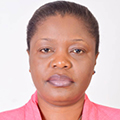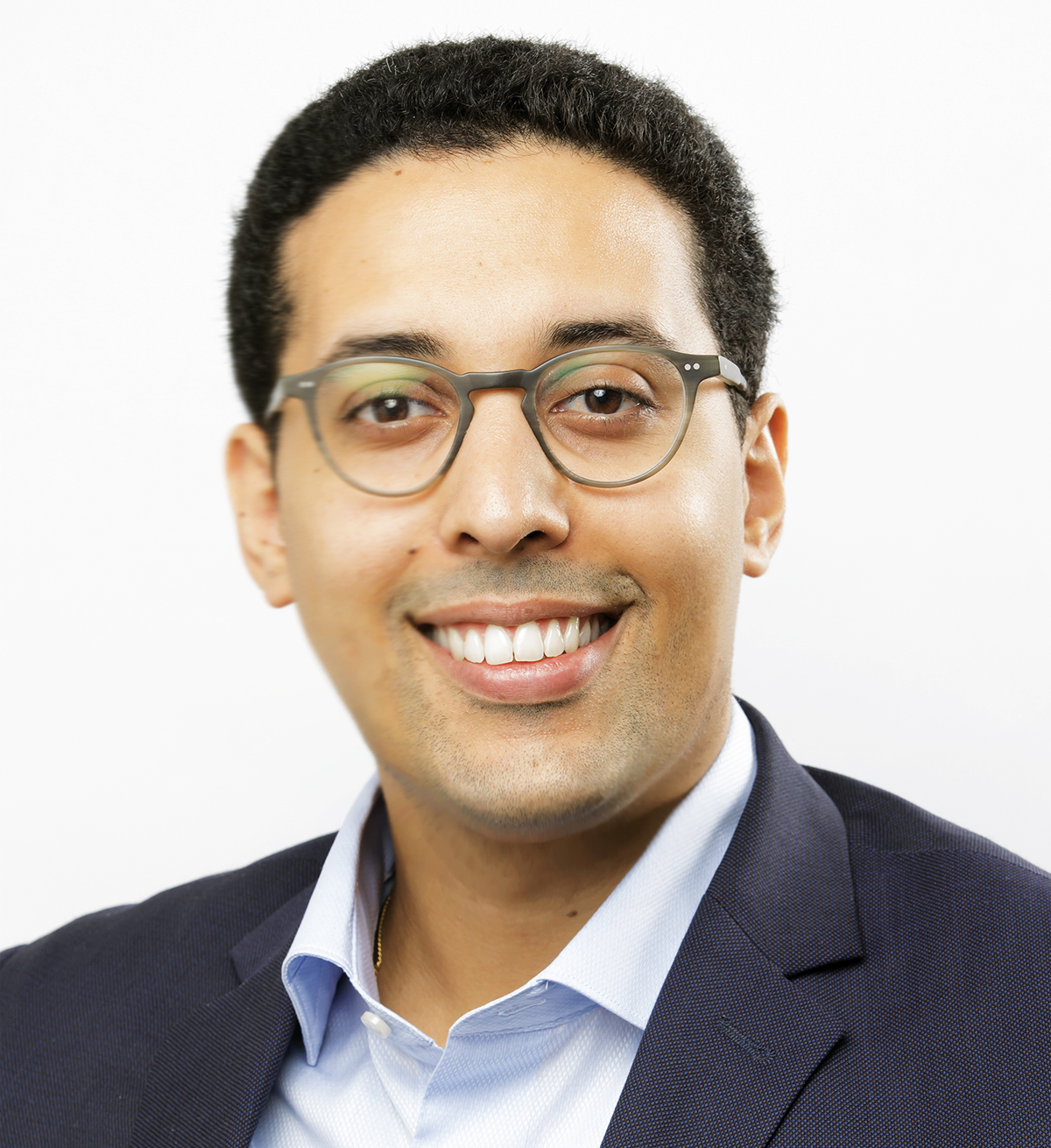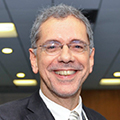
Global Cybersecurity Challenges: Disentangling Risks and Opportunities in International Politics
Paris, France
The Policy Center for the New South and the French Institute for International Relations (Ifri) are organizing the Ifri-PCNS Roundtables under the theme Disentangling Risks and Opportunities in International Politics. This conference is taking place in the context of the Ifri-PCNS partnership.
International politics are increasingly intertwined with cyber-related issues. Cyberattacks are more and more frequent and sophisticated; their perpetrators, like their victims, may be governments or private actors. Cyberconflict is a particularly difficult phenomenon to grasp, given the multiplicity of actors involved, the difficulty of attributing attacks to a specific actor, and the emergence of new forms of “information warfare”. Attempts to regulate cyberspace on a global scale have so far met with only limited results due to fierce international competition among cyber powers. The tremendous multiplication of connected, “smart” devices and the multifaceted expectations towards 5G networks increase the geopolitical risks. Key global powers now assert themselves with regard to the network’s infrastructure (Internet, submarine cables, telecommunications equipment), crossed by huge financial and national security stakes.
Agenda
|
09:00 – 09:15 |
Opening Remarks Marc Hecker, Director of Publication & Research Fellow, Ifri (Paris) |
|
09:15 – 10:45 |
Panel 1: Cybersecurity Cybersecurity has become one of the major stakes for governments, private actors and citizens. National strategies are being either sharpened, either elaborated, mostly blurring the lines between defensive and offensive actions in cyberspace. Proxies contribute to complicate the ‘game’, blending national security rationale with market-related motives. How do these players interact, and to what aim? Are any alliances to be expected in a twofold context of dire transatlantic relations and acute perception of the Chinese ‘threat’? Chair Stephanie Hare, Independent Researcher and Broadcaster (London) Speakers Kevin Signé, Information Security Expert & Managing Partner, LMPS Group (Rabat) Patrick Pawlak, Executive Officer, EUISS (Brussels) Isabel Skierka, Research Analyst and Advisor, Digital Society Institute, ESMT (Berlin) Joan Ali Beri, Lecturer on Cyber Criminality, University of Buea (Cameroon) |
|
10:45 – 11:00 |
Coffee Break |
|
11:00 – 12:30 |
Panel 2: Artificial Intelligence Breakthrough technologies like artificial intelligence and 5G have clear ‘high politics’ stakes on the global stage. In this session speakers will stress that geopolitical dimension by focusing on key challenges: China’s ambitious strategies in AI and 5G and their implications for the West; the European Union’s answer(s) in these fields, and the global legal challenges posed by the dissemination of these technologies, as well as the impact of AI as a lever of development in Africa. Chair Alfredo Valladao, Senior Fellow, Policy Center for the New South Speakers Megan Lamberth, Research Assistant, Technology and National Security Program, Center for a New American Security (Washington DC) Lucien Castex, Secretary-General, Internet Society France Chapter (Paris) Jan-Peter Kleinhans, Project Director Security in the Internet of Things, Stiftung Neue Verantwortung (Berlin) Jean-Christophe Noel, Associate Fellow, Security Studies Center, Ifri (Paris) |
|
14:30 – 15:45 |
Panel 3: Cyberspace Infrastructure The infrastructure of the Internet is increasingly challenged by governments eager to assert their own “sovereigntization” over the network (in particular submarine cables, data centers, servers and routers), and decentralized initiatives aimed at bypassing traditional governmental prerogatives, such as cryptocurrencies. Speakers will highlight these multifaceted policies and stress the challenges for international politics. Chair Julien Nocetti, Research Fellow, Ifri (Paris) Speakers Jean-Luc Vuillemin, Executive VP International Networks, Infrastructures & Services, Orange (Paris) Camille Morel, PhD Candidate, IRSEM (Paris) Clément Jeanneau, Cofounder, Blockchain Partner (Paris) Réda Berrehili, Founder, Ki Foundation (Paris) |
|
15:45 – 16:00 |
Coffe Break |
|
16:00 – 17:30 |
Panel 4: Comparative Cyber Approaches The global cyber policy landscape is increasingly characterized by its splitting up; the United States and China have started a race for technological leadership in the XXIth century while Europe, and Africa, seem to act defensively, being subjected to offensive strategies. How do these policies materialize and interact, and how could the European and African continents assert themselves in the cyber realm? Chair Marc Hecker, Director of Publication & Research Fellow, Ifri (Paris) Speakers Julien Nocetti, Research Fellow, Ifri Douglas Gichuki, Scholar in Information Law and Technology, Strathmore Law School & The University of Capetown (Cape Town) Alice Ekman, Head of China Research, Ifri (Paris) |
|
17:30 –17:45 |
Closing Remarks |
-

Joan Ali Beri Wacka, Lecturer, University of Buea
Ali Joan Beri Wacka, PhD. Computer Science, option Digital Forensics, from the University of Yaoundé 1 / Bloomsburg University Pennsylvania USA. Lecturer at the University of Buea, in the Department of Computer Science and College of Technology. My Research interest is in Cyber Security and Digital Forensics. She also lectures Cyber Criminality at Cameroon’s Nation School of Administration and Magistracy (ENAM) in Yaoundé and has contributed to fighting cyber Criminality in Cameroon working with Law enforcement and the Judiciary and advising appropriate service on cyber security measures. She is currently the Director of a newly created Center for Cyber security, Cyber Defense and Digital Forensics at the University of Buea, Cameroon. She has attended and contributed to seminars, workshops and conferences in ICT, Cyber security and Cyber Criminality across the country including a seminar organized for the Cameroon military and law enforcement on cyber security, cyber criminality and digital forensics in 2013 and 2014. She recently spoke at the Cameroon’s Parliament on the need for cyber Ethics and cyber security. Seeing the behavior that are contributing to challenges on the security and criminal activities on the cyberspace, she is a huge advocate for cyber hygiene, cyber ethics and behavioral cyber security.
-

Réda Berrehili, Founder, Ki Foundation
Reda Berrehili is the creator of startups including MixoTV and Tumbup. Réda is a veteran entrepreneur with experience across a variety of tech fields. Previously co-founder and CTO at Squarebreak.
He graduated with an MEng in Computer Science from INSA Lyon. Le Point has described him as a ‘French Mark Zuckerberg’ and the Challenge magazine as a 'Moroccan Mark Zuckerberg'. In 2015 he was made President of the Jury at La French Tech, a government-run entrepreneurship initiative.
His latest company, Squarebreak, got acquired by Accorhotels to join forces as CTO of onefinestay, the world leader in Luxury Private Rental. Réda is now active driving innovation and technology in the private rental world as much as investing in new startups as a Business Angel.
-

Lucien Castex, Secretary-General, Internet Society France Chapter
Lucien Castex is the Secretary-General of Internet Society France and a researcher at Université Sorbonne Nouvelle. Policy strategist and Internet law expert, Lucien works at the intersection of law and technology with a focus on trust, data, cybersecurity and internet governance. He is a member of the French national consultative commission on human rights (CNCDH).
Lucien has been appointed in the Multistakeholder Advisory Group (IGF MAG) by the United Nation Secretary-General in 2019 and is the co-chair of organizing committee of the French Internet Governance Forum.
-

Douglas Gichuki, Scholar in Information Law and Technology, Strathmore Law School and University of Cape Town
Douglas Gichuki is a doctoral researcher linked to both the IP Unit of the University of Cape Town (UCT) and the Center for Intellectual Property and Information Technology Law (CIPIT) at Strathmore Law School. His research interests are in the different legal and regulatory issues arising from cloud computing such as information ownership, cloud contracts, data protection and cybercrime. His research focuses on abstracted computing (cloud computing) and the challenges it poses to municipal law investigations and prosecution of cybercrime. The research aims at addressing the novel challenges faced by law enforcement agencies in a transnational location independent legal environment.
Douglas teaches in the cyber law courses at Strathmore and at UCT. He is an advocate of the High Court of Kenya and is an associate at the Nairobi City law firm of Muma & Kanjama where he leads advisory on Intellectual Property and IT law transactions.
Gichuki holds an LLB degree from the Catholic University of Eastern Africa (CUEA) in Nairobi, and an LLM (in Information Law and IP) from Norwich Law School, University of East Anglia, UK.
-

Stephanie Hare, Independent Researcher and Broadcaster
Stephanie Hare is a researcher working across technology, politics and history. She has worked as a Principal Director at Accenture Research, a strategist at Palantir, a Senior Analyst at Oxford Analytica, and a consultant at Accenture. She earned a PhD from the London School of Economics and held the Alistair Horne Visiting Fellowship at St Antony's College, Oxford. Selected for the BBC Expert Women programme, Stephanie frequently shares insights on television, radio and online. Her research publications and media commentary can be found at harebrain.co.
-

Marc Hecker, Director of Publications, Research Fellow at the Security Studies Center, Ifri
Marc Hecker is the Director of Publications of the French Institute for International Relations (Ifri) and Editor-in-Chief of Politique étrangère. He is a Research Fellow at the Security Studies Center. Marc Hecker holds a PhD in Political Science from University Paris 1 Panthéon-Sorbonne and teaches a course on "terrorism and asymmetric warfare" at Sciences Po. He wrote several books, including Intifada française? De l'importation du conflit israélo-palestinien (Ellipses, 2012) and War 2.0. Irregular Warfare in the Information Age (Praeger, 2009 with Thomas Rid).
-

Clément Jeanneau, Cofounder, Blockchain Partner
Clément Jeanneau is cofounder of the startup Blockchain Partner, one of the European leaders in blockchain consulting. He advises major companies and public institutions (Bank of France, Canton of Geneva...) and helps public authorities understand the key issues of blockchain and cryptoassets. He is also founder of the website SignauxFaibles.co focused on emerging trends and foresight, and author of several publications such as "The Age of the decentralized web" (Digital New Deal Foundation, 2018).
-

Jan-Peter Kleinhans, Project Director, Security in the Internet of Things, Stiftung Neue Verantwortung
Jan-Peter Kleinhans is director of the project IT Security in the Internet of Things (IoT) at SNV – a charitable, non-partisan, independent tech policy think tank in Berlin, Germany. He analyses how standardization, certification and market surveillance can create economic incentives for IoT manufacturers to produce secure and trustworthy IoT devices. A second focus of his work is on the security of digital infrastructures and the geopolitics of global ICT supply chains – especially the 5th generation of mobile networks (5G), which will connect the Internet of Things in the future.
Jan-Peter is Fellow of the Transatlantic Digital Debates 2016. He studied communication sciences in Uppsala, Sweden and business informatics in Darmstadt, Germany.
-

Megan Lamberth, Research Assistant, Technology and National Securtiy Program, Center for a New American Society
Megan Lamberth is a researcher for the Technology and National Security Program at the Center for a New American Security (CNAS), where she focuses on artificial intelligence policy and emerging technology. Prior to joining CNAS, Megan was a Brent Scowcroft Fellow with the Aspen Strategy Group. In May 2018, Megan graduated from the Bush School of Government & Public Service at Texas A&M University. As a Master of International Affairs student, Megan concentrated in U.S. foreign policy and the Middle East.
-

Mohammed Loulichki, Senior Fellow, Policy Center for the New South
Mr. Loulichki is a Senior Fellow at the Policy Center for the New South, previously known as OCP Policy Center, who focuses on Diplomacy, conflicts resolution and Human rights. He has an extensive experience of 40 years in diplomacy and legal affairs. He assumed inter alia the functions of Head of the Department of Legal Affairs and Treaties in the Ministry of Foreign Affairs. He was also Ambassador of Morocco in Hungary, Bosnia – Herzegovina and Croatia (1995-1999), Ambassador Coordinator of the Government of Morocco with MINURSO (1999 – 2001), Ambassador of Morocco to the United Nations in Geneva (2006-2008) and New York (2001-2003 and 2008-2014), as well as President of the Security Council (December 2014).
Mr. Loulichki was appointed President of the Counter-Terrorism Committee of the Security Council (2013), President of the working Group on Peace Keeping Operations (2012), Vice-President of the Human Rights Council (2006), Facilitator of the Universal Periodic Review of the said Council (2006 and 2010) and President of the National Committee in charge of the follow up on nuclear matters (2003-2006).
-

Camille Morel, PhD Candidate, IRSEM
Camille Morel is a PhD candidate in Law and Political Science at the Centre of Lyon for International Security and Defence Studies (CLESID), Jean Moulin Lyon III University. Her research focuses on the legal regime and strategic issues of submarine cables. Camille Morel’s PhD research is funded by the Directorate General for International Relations and Strategy (DGRIS) and she is associated with the Institute for Strategic Studies (IRSEM).
-

Julien Nocetti, Research Fellow, Ifri
Julien Nocetti is a Research Fellow at the French Institute of International Relations (Ifri) since 2009, where he is a specialist on global digital and cyber issues. As such he researches on the intersection between technology and international politics. His latest publications deal with the geopolitics of cyber conflict, China’s assertiveness in artificial intelligence, and Europe’s digital and data policies. Julien Nocetti is also a Russia expert, in particular Russian foreign and domestic Internet policies. Among his recent publications: “D’un monde à l’autre ? Les implications de l’intelligence artificielle en politique internationale”, Note de l’Ifri (to be published, 2019); “Dazed and confused: Russian information warfare – The Syria lessons”, IMED Policy Brief, February 2019; “Will Europe remain a digital colony?”, in Th. Gomart & M. Hecker (eds.), European Elections 2019: Structuring the Debate, Etudes de l’Ifri, February 2019.
-

Patryk Pawlak, Executive Officer, EUISS (Brussels Office)
Dr. Patryk Pawlak heads the Brussels office of the EU Institute for Security Studies (EUISS)—an EU agency dealing with the analysis of foreign, security and defence policies of the European Union. In this capacity, he is responsible for developing and maintaining relations with Brussels-based stakeholders. In addition, Dr Pawlak coordinates the Institute’s cyber-related engagements. Since February 2018, he manages the EU Cyber Direct—a multimillion project implemented in cooperation with the European External Action Service—aimed at supporting the EU’s cyber-related cooperation with six major partners: Brazil, China, India, Japan, South Korea, and the United States. He also serves as a Co-Chair of the Advisory Board of the Global Forum on Cyber Expertise—a global platform for countries, international organisations and private companies to exchange best practices and expertise on cyber capacity building. Dr Pawlak holds a PhD in Political and Social Sciences from the European University Institute (Florence) and a Master’s Degree from the College of Europe (Warsaw).
-

Kevin Signé, Information Security Expert & Managing Partner, LMPS Group
Kevin Signé is an expert in information security, risk management and IT Governance. As a partner in the LMPS Group, he looks at technical challenges and innovative projects related to information security. His ambition is to make information security, including cybersecurity, a reality in Africa and around the world. His skills cover the entire value chain of information security, processes, technology, people. He has worked on several projects that include, but that are not limited to the following areas: Cybersecurity and the fight against digital fraud, PCI DSS-CARd Payment Industry (QSA PCI Auditor), ISO27001, WLS SCADA-Information Security and Industrial Systems, ISO22301-business continuity, COBIT, ISO20000 & ITIL-Governance and IT Service Management, Legal compliance- (personal data, intellectual property, anti-money laundering), and finally forensics and incident response.
Accredited by PECB and EC-Council, and member of Offensive Security and CLUSIM; he acts as a trainer and lecturer, both in business and university, for the areas mentioned above. In addition, he assists his clients in choosing appropriate technologies for the protection of their information assets. Mr. Signé also participates in the partnership management and development of the LMPS Group in Africa.
-

Isabel Skierka, Research Analyst and Advisor, Dgital Society Institute, ESMT Berlin
Isabel Skierka is a research analyst for cybersecurity policy and strategy with the Digital Society Institute at ESMT Berlin. She is also pursuing a PhD at the Ragnar Nurkse Department of Innovation and Governance at Tallinn University of Technology in Estonia, in which she explores security vulnerability management in digital government infrastructures. Besides, she is a non-resident fellow at the Global Public Policy Institute (GPPi) and a next generation member in the Internet Governance Forum Germany's steering committee. Previously, she worked at the GPPi, at NATO and – as a trainee – at the EU Commission. Isabel Skierka holds an MA from the War Studies Department of King's College London and a BA in European Studies from Maastricht University.
-

Alfredo Valladao, Senior Visiting Fellow, Policy Center for the New South
Alfredo G. A. Valladão is a Professor at the Paris School of International Affairs (PSIA) of Sciences Po Paris and a Senior Research Fellow at Policy Center for the New South who focus on international affairs, geopolitics, global economics, Brazil and Latin America. Alongside these positions, he is President of the Advisory Board at EU-Brazil association in Brussels, Member International Advisory Board of CEBRI (Brazilian Center for International Relations – Rio de Janeiro), Member of the Comité des Rencontres Internationales de Genève (RIG), Director of the Latin America Research Chair at CESEM-HEM in Morocco and a columnist for Radio France Internationale (RFI). Former member of the Board of Trustees of UNITAR (2009-1015), and former Director of the Mercosur Chair of Sciences Po (1999-2010) and Coordinator of the Working Group on EU-Mercosur Negotiations and of the International Conference of Fort Copacabana on European-South American Defense and Security Dialogue. Professor Valladão has published extensively on geopolitics, global economics, regional integration and trade negotiations, Brazil and Latin America. He holds a PhD summa cum laude in Political Sciences from Sciences Po Paris.
-

Jean-Luc Vuillemin, Executive VP International Networks, Infrastructures & Services, Orange
Drawing on global telecommunications industry experience and a passion for new technologies, Jean-Luc Vuillemin heads Orange International Networks Infrastructures & Services organization.
Jean-Luc’s Orange career covers more than twenty years and a series of technical leadership roles directing French and international organization. He was the Managing director of two subsidiaries: Cyrtel in Congo-Brazzaville & Mobilecom in Jordan where he was the General Director but also the Technical Director of Optimus in Portugal. After that, Jean-Luc held various position operational leadership positions in France: Service Development, Networks and Innovation Director for Paris region, Aquitaine (South of France) Regional Director & Head of Network Production before becoming the Networks and technical services Director for Orange France (BtoC). Jean-Luc was very involved the 4G & Fiber deployment in France.Since June 2014, Jean-Luc is Senior Vice President of Orange International Networks Infrastructures & Services (OINIS) which is the technical organization serving the Orange Group internationally. More precisely, OINIS customers are the B2B market with Orange Business Services and the Wholesale with International Carriers. Jean-Luc is leading teams of 1500 networks & services experts worldwide. With a large scope of competencies, Jean-Luc’s teams are designing, deploying, operating & protecting all Orange international networks (transmission & services). Within OINIS, Jean-Luc is also managing Orange Marine, the fully-owned subsidiary of Orange specializing in submarine cable laying and maintenance thanks to their 6 cable ships.









